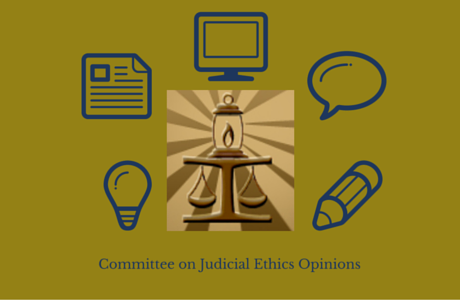Supreme Court Committee Issues Opinion to Judges on Disclosing Campaign Contributions
A state Supreme Court committee today issued a formal opinion that guides trial court judges on campaign contributions and other campaign assistance they should disclose.
In the opinion, the California Supreme Court Committee on Judicial Ethics Opinions makes clear that a trial court judge is ethically obligated to disclose campaign contributions of $100 or more from a party, lawyer, or law office. The committee also advises that a judge should disclose contributions of $100 or more from a witness or other person whose credibility the judge will evaluate.
Other campaign-related assistance, such as many smaller contributions from individual lawyers in a firm, volunteer work for the campaign, and other relationships to the judge or campaign may also warrant disclosure. The opinion advises that a judge should also disclose indirect contributions, such as those made by a party, lawyer, or law office to a political action committee (commonly known as a PAC), if the judge is aware that the contribution is flagged for the benefit of the judge and the PAC will honor that request.
Said committee member Justice Judith L. Haller, of Fourth District Court of Appeal:
“The campaign contribution disclosure requirements create a balance; permitting trial court judges to accept campaign contributions while maintaining public confidence in judicial integrity and impartiality by requiring that a judge make transparent disclosures. This opinion provides practical advice and is a primer for any candidate for judicial office or elected trial court judge regarding their ethical obligations associated with a judicial campaign.”
The opinion, which reflects the views of the committee and not necessarily of the California Supreme Court, also guides a trial court judge through the details and logistics of making a disclosure:
- A trial court judge must disclose the contributor’s or lender’s name, the amount and date of each contribution or loan, and the cumulative amount of the contributions or loans.
- The disclosure must be on the record and should not create an appearance that the judge is soliciting campaign contributions. The opinion provides examples, such as stating on the record that the parties and lawyers may obtain the contribution information at an easily accessible location in the courthouse.
- A judge should start disclosing campaign contributions starting no later than one week after receiving the first campaign contribution and for at least two years after the judge is sworn in or receives the last contribution, whichever is later.
The committee invited the public to comment on a draft of this opinion in December, and the opinion includes changes adopted by the committee after carefully considering the public’s comments. The comments submitted with confidentiality waived are posted for public view on the CJEO website.
About the Committee on Judicial Ethics Opinions
The Committee on Judicial Ethics Opinions is a 12-member advisory committee that includes appellate justices, trial court judges and commissioners. The committee is appointed and authorized by the California Supreme Court, but its work is independent of the court, the Judicial Council, and all other entities.
The committee publishes formal opinions, issues confidential informal opinions, and provides oral advice on proper judicial conduct pursuant to the California Code of Judicial Ethics and other authorities. (Cal. Rules of Court, rule 9.80(e)(1).).
Its formal opinions are advisory and do not necessarily reflect the views of the California Supreme Court or any other entity. (Cal. Rules of Court, rule 9.80(b); CJEO rule 1(a)).)


